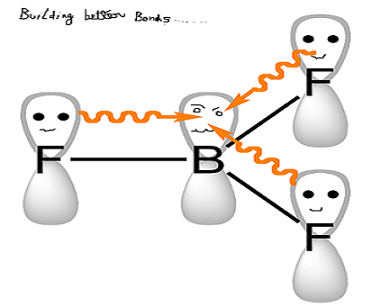Importance of having a strong network
Having plenty of friends is an emotional cushion that can ease a person through life's blows and many stresses. But according to experts close relationships and social contacts remain crucial even when the living is easy and comfortable. The social ties that bind us are also the ones that safeguard our health and keep us physically and mentally alert and fit. This has been proven again and again in many instances.
One of the experiments conducted by psychologists to see how social networks effects the individuals’ overall personality was on 100, soon to be retired people. The study was again conducted four years after their retirement. According to the results more than 40 percent of the people were very unhappy with their lives, 30 percent of the people said that they were much less satisfied with life after their retirement, and 10 percent said that their life was the same as before and 20 percent of the people thought that their life was better than before and they were happier now than they were while they were working.
Retirement is a period that is difficult to many people and the reasons are varied. The reasons could be any of these - financial status, physical well being and marital status. However, the most relevant and important fact that emerged from the studies was that almost all those people who were happy with their life post retirement had one thing in common - a solid social support and day today communication and intercation. On an average they had several good friends who they could rely on and interact on a regular basis while compared to the other retired and unhappy people who had fewer friends and a less satisfactory support system.

Relationships and Longevity
Many psychiatrists now are certain that relationships and longevity are interlinked. It has been proved that people with the strongest social and community ties were the least likely to become sick and die soon. Most isolated and lonely people had the highest early death rate. Similarly, heart patients who had neither a spouse, a close relative or a friend was three times more likely to die sooner than those involved in a caring and loving relationship.
Among couple too, when there are issues on which they are unable to see eye to eye or resolve things amicably, things can turn negative. And the more sarcastic and nasty they are to each other and the more critical they are of each other the more their immune system suffers. This was another point that the psychologists were able to prove through studies conducted on several married couple belonging to different levels.
Similarly even among women who were diagnosed and suffered from breast cancer, the statistics showed that those who had families and friends to fall back on and someone to share their fears, lived significantly longer period of time ( an average of two years and more ). A study was also conducted on men and women who were given nasal drops containing common cold virus. Later it was found that people who were able to communicate and had better social ties were better able to withstand the infection and come out of it far more quickly than those who had limited social interaction and net work.
Amazing when you think about it, sn’t it ?

The Importance of Positive Relationships
Now more than ever psychiatrists make it a point to study the social and other inter personal relationships of a person when he or she comes up with a problem since it is all interlinked – physical, emotional or psychological! Positive relationships are crucial for our well being both physical and mental. In fact, absence of such connections is proving to be detrimental making the individual’s immune system suffer. So, according to psychologists loneliness is lethal in many ways and a lack of social relationship constitutes a major health hazard that almost rivals the effects of other risks like smoking, high blood pressure and lack of exercise.
So the question here is how do social connections have a bearing upon the state of one’s health ? According to psychologists it is because the social fabric is threatened, which in turn causes enormous stress on the individual leaving him or her vulnerable to ailments. More recently lab tests have shown that it is not just the presence of relationships that matter but the quality of those relationships and how positive is our connection with others that plays a major role, and deeply impacts our physiology.
Intricacies of relationships and the damaging effects of negative interactions
Scientists have been making various studies to gather more and more information needed to work out the intricacies of how relationships affect the body and most of the evidence gathered to date chronicles the damaging effects of negative interactions. We can see how our blood pressure goes up and down when there is hostility around us and also when there is fear and uncertainty, there is a similar reactions - one gets palpitations and headaches that seem to vanish the moment you have some lighter moments and receive a positive input. Our moods and mental status largely reflects on the health of our body.
In fact a hostile home environment can cause disarray in the Neuroendocrine system (is a system that is primarily responsible for neural modulation of function stationed near the brain) which in turn can have harmful effects on immune function, hormonal imbalance, cardiovascular health. Any argument or long term hostile behavior in a couple ,siblings or between close relatives can have negative impact all round.
Exactly why this happens is still not known, perhaps when we look at people with hatred and show our anger the negativity suggests something far worse and can also show rejection and a suggestion of harboring or continuing in a hopeless situation. This is why even mildly negative situations disturb and register far more within our mind than a positive and a happy situation which we are able to take in our stride most of the time. This is more so when such negative impact comes from interacting with someone close to you like your spouse, children, parents or siblings.
Acceptance – The magic word
A longing for a stable relationship is a fundamental human need and this only requires regular contact and persistent demonstrations of caring. We as human beings want to belong all the time and be reassured that we matter to people who are close to us. This need for acceptance is built in, down to the very marrows of our bones.
Even in everyday disagreements we need to constantly acknowledge the strength and stability of our relationships. And when we get it, our body and mind virtually does a tap dance. According to social psychologists minor arguments that arise out of such a need in fact produces positive results – like for example telling your partner that you are ticked off with him or her not only averts serious marital problems but also boosts immune functions. A mutual interest, care, affection ,humor and admiration for one another are not normally sacrificed when you have such arguments. It does not make you contemptuous, but is paving the way towards building a friendly relationship which is as necessary in a marriage as care and love.This could be true of other relationships as well like between close friends, siblings or between parents and children.
This is all the more reason to resist the impulse to criticize your partner in a contemptuous way and use abusive language which normally is a sure way to kill any love and respect for yourself.

Building better bonds
It has been told that friends don’t spring out like wild flowers, they have to be cultivated like roses. And like roses they will keep blooming and growing as long as you nourish them and paves the way for a lasting and healthy relationship. I am listing down a few important points that help us do that.
1. Being a Friend for life – As I said earlier friendships don’t happen overnight. They require exchanges of trust and confidence that can developed only over a period of time. You have to maintain and nourish your friendship by showing genuine and a continued interest in them and their activities. Don’t just say how are you? And move on with your own tales, instead listen to what they have to say and tell them what you are doing.
2.Trying new activities – Often you attract friends when you have similar interests and likes. I have made many friends this way because our thinking, hobbies and personality traits have been similar and feel that it works best. But we have to be willing to reciprocate and keep up the contact and in time realise that the interaction and communication never dries up.
3. Be realistic and open - Friendship depends on sharing and responding to each other and there is no fixed formula for making friends. The only requirement is just being human and showing that you care. Some people have this feeling that when they show their feelings openly they may be ridiculed and taken advantage of, but if your feelings are genuine then you are bound to get positive vibes and results from others. The fear of ridicule comes often from low self esteem.
4. Find a group of sympathetic people – It is a peculiar catch 22 situation! People who are lonely and need to have friends are the ones who have the most trouble making friends. Sometimes their neediness can scare off others, that’s why it is better to pick and choose those who are sympathetic in nature and are understanding. A self help group is the best place to find someone with whom you could open up and share your thoughts.
5. Have buddies from both sexes – It is not really difficult to do that, one can have good non sexual relationship with members of the opposite sex and gain from it. Sometimes men feel more comfortable expressing their feelings to women rather than other men and vice versa...
6. Keeping in touch is important – There is a saying Out of sight is out of mind , so it makes sense to be connected with friends and people with whom you share a close relationship either through messages, talking over the telephone or through the net . You don’t really have to have constant direct contact to maintain a good valuable friendship.
7. Have a wider circle of friends – There are some households where the couple interact only with the family, close relatives and a few select friends. Many of their old friends who were close before marriage are forgotten. This no doubt depends on the couple as to who they want to keep in touch with. But often we notice that if and when a person is widowed or separated the very first person they would turn to is the old friend or friends before marriage for emotional support. So never give up on friendship at any stage of your life, neither should you insist on your spouse or your children to do so for that matter.. The more friends you have at different stage of your life the better it is for your continued good health.
Community help
As I discussed earlier although health and our state of mind depends on our relationships, it also depends on the size of the social community. Community involvement confers significant health benefits since community living brings economic, social and other benefits.
People with a larger network of relationships consisting of spouse, parents, children, siblings, cousins ,aunts, uncles, friendly neighbors, colleagues and friends are much more happier since these various relationships need to be maintained - which means that it keeps them actively engaged and healthy.
This being the fact, psychologists however are not sure why relationships and diversity of social relationships are so important to an individual. They feel that it is probably because , having these different social roles contributes to a person’s feeling of self esteem. It may also minimize the impact of problems elsewhere such as work place or at home.
When people have a less diverse network, they suffer to a greater extent and have far less self esteem especially if something were to go wrong within their narrow network of relationships .So, no matter how busy we are in life , it is in our own interest to cultivate social contacts and build relationships .
Finally according to many psychologists a fight now and then is good for any relationship as long as it is constructive. But it is good to remember that you cannot just say anything you want, any way or anytime you want. Speak for yourself but never mind read or speak for others which is not liked by many people, causing rifts in a relationship. Try to keep statements brief and to the point. Another very important point that needs to be borne in mind is not being boastful about your own achievemnets , which can put off most people - self praise normally arises out of a deep rooted inferiority complex which does little to help build relationships.
Building relationships is not an easy process, it needs a lot of effort, tact, giving space, being understanding and last but not least a genuine interest in other people. Positive relationships are not a luxury but a great necessity of life which in turn helps you lead a happier and more fulfilled life.